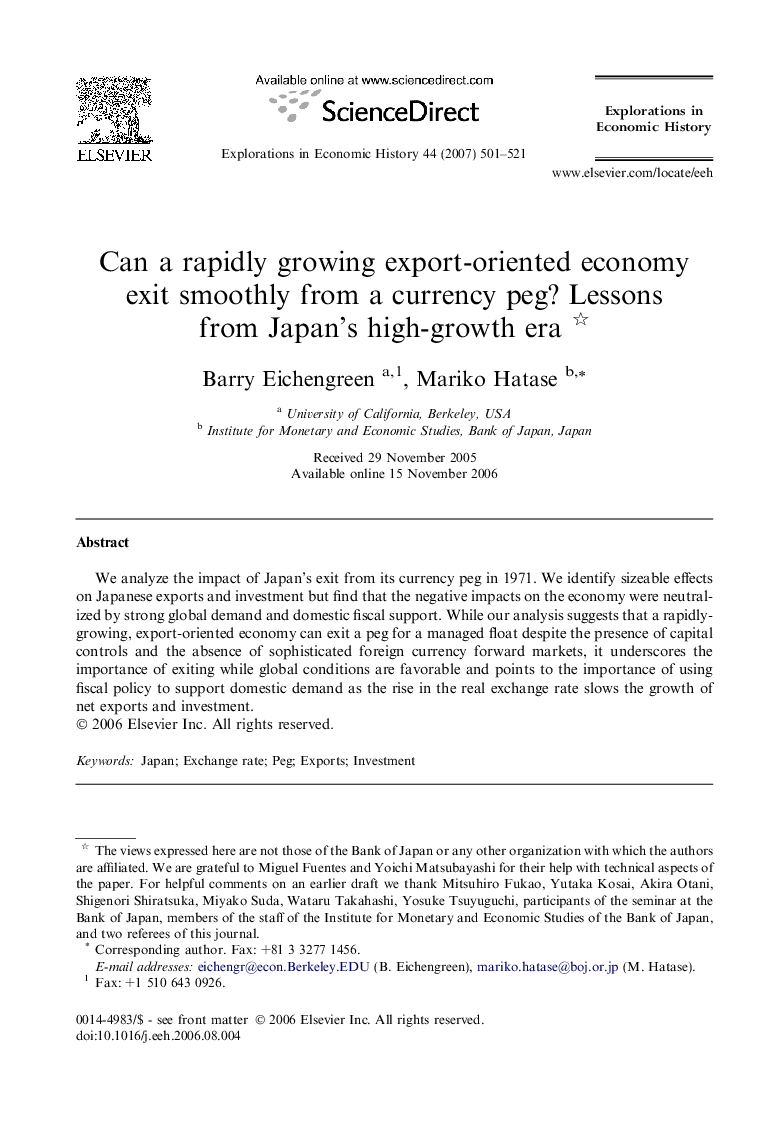| Article ID | Journal | Published Year | Pages | File Type |
|---|---|---|---|---|
| 5068983 | Explorations in Economic History | 2007 | 21 Pages |
Abstract
We analyze the impact of Japan's exit from its currency peg in 1971. We identify sizeable effects on Japanese exports and investment but find that the negative impacts on the economy were neutralized by strong global demand and domestic fiscal support. While our analysis suggests that a rapidly-growing, export-oriented economy can exit a peg for a managed float despite the presence of capital controls and the absence of sophisticated foreign currency forward markets, it underscores the importance of exiting while global conditions are favorable and points to the importance of using fiscal policy to support domestic demand as the rise in the real exchange rate slows the growth of net exports and investment.
Related Topics
Social Sciences and Humanities
Arts and Humanities
History
Authors
Barry Eichengreen, Mariko Hatase,
